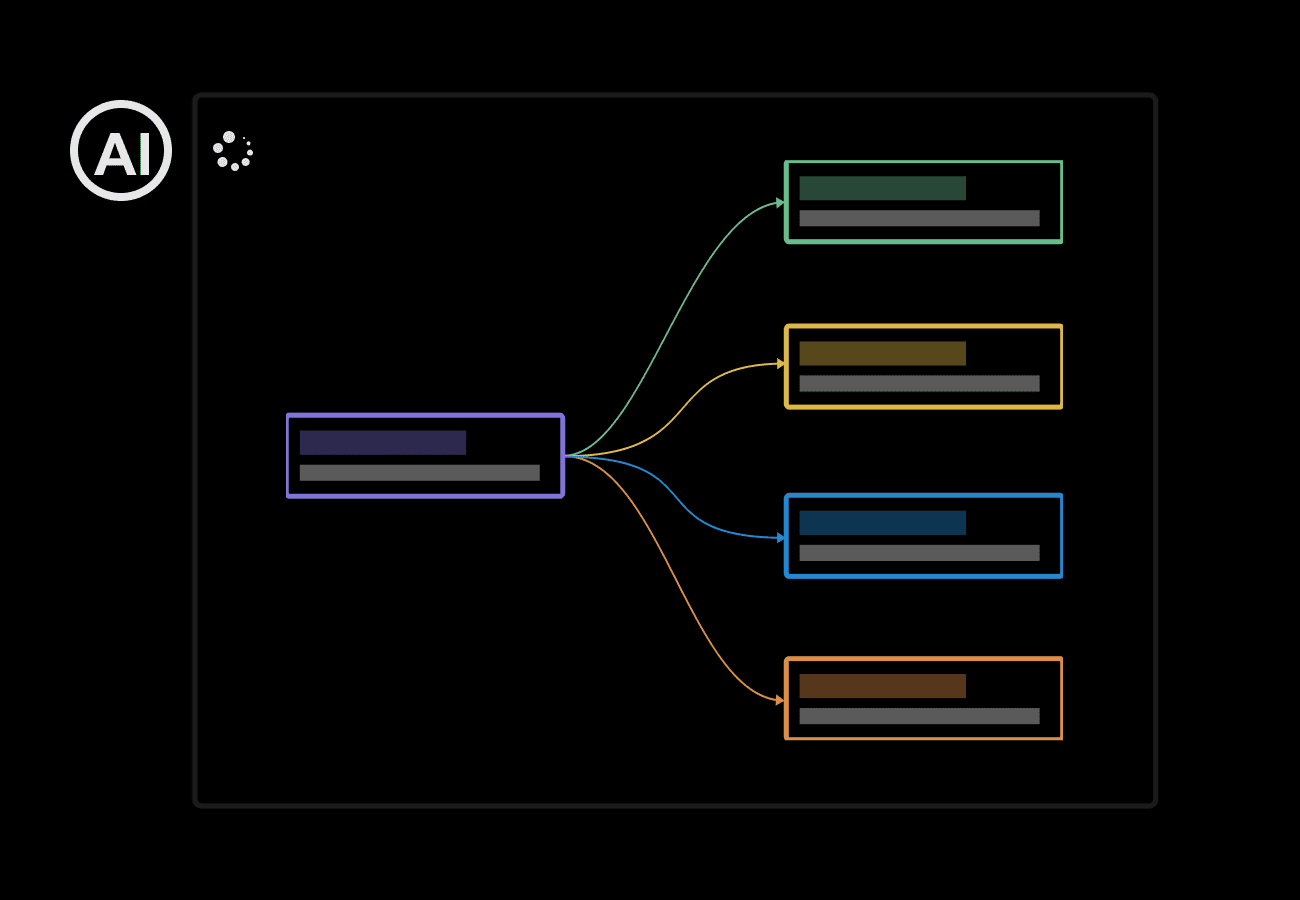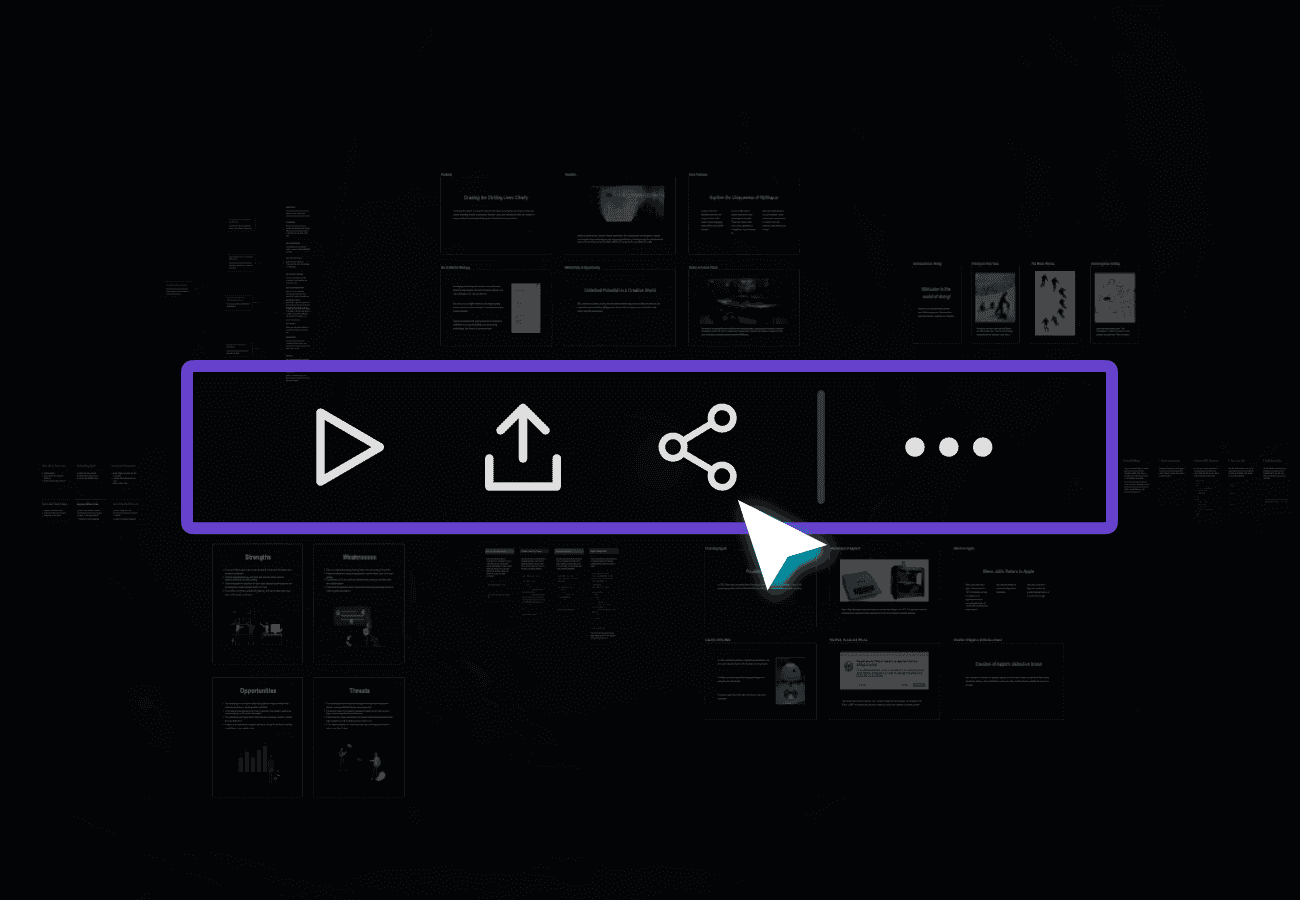









How to create a confusion matrix using AI
Generate accurate confusion matrices effortlessly with AI-powered assistance, simplifying your data analysis process.

Input your data
Type in your classification results or upload a file containing your data for analysis.

Refine the matrix
Adjust the AI-generated confusion matrix through additional prompts to ensure accuracy and relevance.

Export and Share
Save your confusion matrix as a PNG file or publish it online with a shareable URL.
Why choose MyMap's AI Confusion Matrix Maker?
AI-Powered
Chat with AI to create your confusion matrix in seconds - no manual data entry or complex tools needed.
Flexible Input
Import your data from various file types. Our AI adapts to your format, saving you time and hassle.

Up-to-Date Info
Our AI taps into Google and Bing, ensuring your confusion matrix reflects the latest industry standards and best practices.
Web Integration
Paste a URL, and our AI extracts relevant data to enhance your confusion matrix with real-world examples.
Team-Friendly
Collaborate with colleagues on your confusion matrix in real-time, boosting productivity and ensuring everyone's on the same page.
Easy Sharing
Export your confusion matrix as an image or PDF, or share a link for quick and effortless distribution.
Use Cases

Data Scientists
Data scientists use this tool to quickly visualize model performance, identifying misclassifications and areas for improvement in their machine learning algorithms within minutes.

Machine Learning Engineers
ML engineers leverage this tool to rapidly generate confusion matrices, streamlining the evaluation process for classification models and facilitating iterative improvements.

AI Researchers
AI researchers utilize this tool to effortlessly create confusion matrices, enabling swift analysis of experimental results and comparison of different classification approaches.
FAQs about Free AI Confusion Matrix Maker
What is a confusion matrix?
A confusion matrix is a table that visualizes the performance of a classification model. It shows the relationship between actual labels and predicted labels, helping to identify where the model might be 'confused' or making errors.
How do I create a confusion matrix using this tool?
To create a confusion matrix, simply upload a CSV file containing two columns: Actual Label and Predicted Label. The tool will then generate a visual representation of the confusion matrix as well as a CSV file with the table data.
Is there a limit to how much data I can process?
Yes, due to JavaScript timeout errors, the tool processes the first 150,000 rows of your data. If you have more data, we recommend uploading a representative sample.
What file formats can I use with this tool?
Currently, the tool accepts CSV (Comma Separated Values) files only. Make sure your file has just two columns in this order: Actual Label and Predicted Label.
How long does it take to generate a confusion matrix?
The process can take up to 2 minutes, depending on the size of your dataset.
What are the output formats for the confusion matrix?
The tool provides two outputs: a PNG graphic visualizing the confusion matrix, and a CSV file containing the table data.
Is this confusion matrix maker really free?
Yes, this AI Confusion Matrix Maker is completely free to use. There are no hidden charges or premium features.
How many classes can the confusion matrix handle?
The confusion matrix graphic works best when you have six or fewer classes. For more than six classes, the visualization may become less readable, and alternative methods might be more appropriate.
